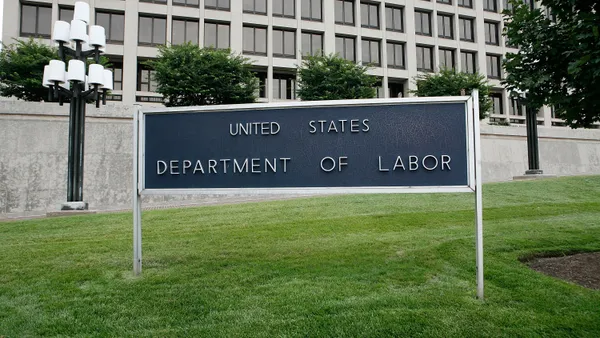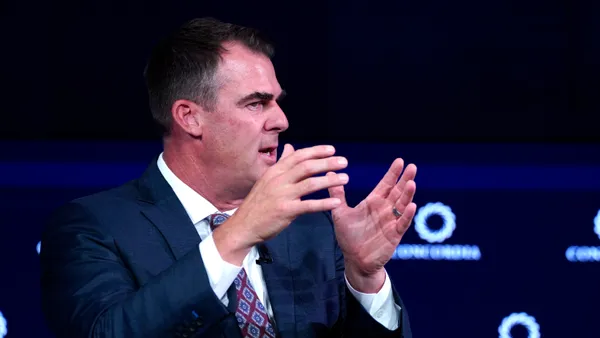Dive Brief:
- The United Kingdom is hoping to crack down on a significant problem with grade inflation, which has resulted in the number of students attaining first class honors more than tripling over two decades, according to Times Higher Education. On average, 26% of graduates get the highest recognition, while two prominent colleges reward 44% of their students with the distinction.
- The report says it is a result of a “market driven higher education system” where colleges are competing to attract and keep the best students. Other say that various forms of teacher ratings and evaluations create pressure to raise grades.
- Advocates are working to clarify grade standards and are considering increasing the number of external examiners who can objectively study a university's grading policy and record. Education leaders have rejected adding a higher level standard to recognize another layer of exceptional students.
Dive Insight
Grade inflation in higher education has become an issue in the U.S. over about the last 50 years. One 2017 report proposing solutions to the problem noted that despite the impression that college students have heavy work loads, researchers found that students worked about 10 hours less per week over a period of about 40 years ending in 2004, and they obtained 10% higher grades between 1991 and 2006.
Another ongoing grade inflation review project begun several years ago in connection with an article in the Washington Post, reported that As represented 43% of all letter grades in colleges in 2016, up by 12% since 1988 and 28% since 1966. Those researchers suggest that grades have risen sharply in different periods – after the Vietnam War and as colleges became more competitive and began more marketing efforts, for instance. About 15% of universities have reported only modest increases in GPAs.
Two institutions have attempted grade deflation efforts. Princeton University implemented a program in 2005, which resulted in a significant drop in GPAs, but the guidelines were later abandoned, according to officials, because the policy was “a considerable source of stress for many students, parents, alumni, and faculty members.” Wellesley College has also had success with dropping grades with a policy adopted in 2004 that established median grades for introductory courses, but critics have recently suggested it is unfair and hampers student efforts to get jobs.
Researchers recommending solutions have suggested that more courses be pass-fail, student evaluations be developed differently, exams be more objective and graded by someone other than professors, including electronically, and that rubrics be firmly put in place.
High school grade inflation, which also has gotten a lot of attention, may contribute to student expectations that increases pressure on college grades, experts say.














